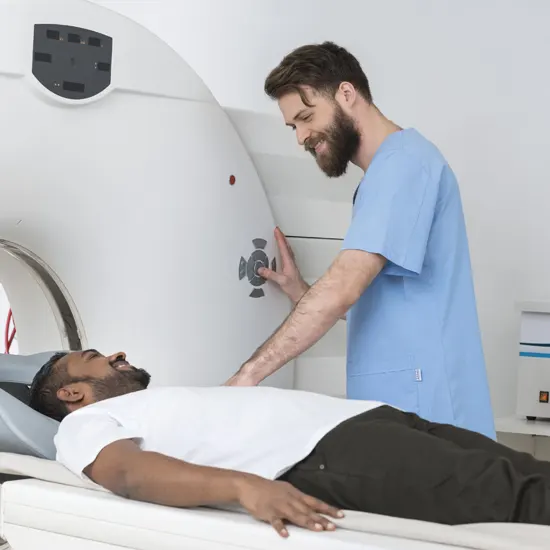
MRI (magnetic resonance imaging) plays an important role in follow-up care for patients who have been diagnosed with various medical conditions, including cancer, neurological disorders, and musculoskeletal injuries.
MRI (magnetic resonance imaging) plays an important role in follow-up care for patients who have been diagnosed with various medical conditions, including cancer, neurological disorders, and musculoskeletal injuries. Here are some ways MRI scans are used in follow-up care:
- Assessing treatment response: MRI scans can be used to assess how well a patient is responding to treatment. For example, if a patient has undergone chemotherapy or radiation therapy for cancer, MRI scans can help determine if the tumor is shrinking or if there are any signs of recurrence.
- Detecting progression: MRI scans can help detect disease progression or recurrence in patients who have been previously diagnosed with a medical condition. For example, MRI scans can help detect new tumors or lesions in patients who have a history of cancer.
- Monitoring chronic conditions: MRI scans can be used to monitor chronic conditions such as multiple sclerosis or Alzheimer's disease. Repeat MRI scans can help track the progression of these conditions and guide treatment decisions.
- Identifying complications: MRI scans can help identify complications that may arise from certain medical procedures, such as spinal surgery or joint replacement surgery. MRI scans can help detect infections, fluid build-up, or other complications.
MRI scans are a valuable tool in follow-up care for patients with various medical conditions. MRI scans can help assess treatment response, detect disease progression or recurrence, monitor chronic conditions, and identify complications from medical procedures.









